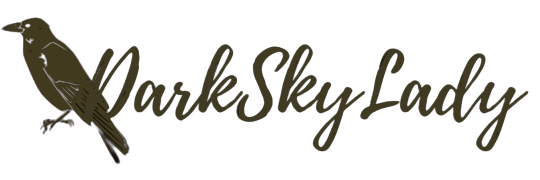The Moogai touches on so much other than the paranormal entity lying in wait.
The Moogai is a horror film about an Aboriginal couple that, with the birth of their newborn son, face a sinister presence looking to take their kids. There’s plenty underneath the surface of this horror film, but the surface frights are also undeniably creepy. A system that should protect and nurture all mothers often fails them. Fleshed out into a feature-length film based on a short, The Moogai tackles racism and its impact on Aboriginal families as well as postpartum and harmful gender roles. The Moogai builds a tense, discomforting tale that haunts viewers and makes parents want to clutch their kids.
Directed and written by Jon Bell, the movie stars Shari Sebbens as Sarah, a working mom with a reasonably blessed life. She has her job, her partner Fergus (Meyne Wyatt), her daughter Chloe (Jahdeana Mary), and another child on the way. The one spot in her life is her trying to connect with her biological mother, Ruth (Tessa Rose). Their conflict stems from Sarah’s belief that her mother lost her due to being an unfit parent, whereas Ruth asserts that white people stole her kid. But Sarah’s life is about to get a lot more complicated and frightening.
The Moogai Is the Danger of White People Taking Aboriginal Children

The Moogai uses the supernatural boogeyman as a stand-in for white people. Its appearance resembles an old, wrinkled white man, save for its two faces and extended hands. However, the two faces could represent the two-faced nature of whiteness. While most horror films do better when the monster goes unseen, here it works because its appearance is essential for what the movie drives home. It’s not paranoia for Aboriginal people, as it was such a tragically common occurrence that it’s called the “Stolen Generations.”
Because a white family raised Sarah, she has little connection to her Aboriginal roots. She resists anything her mom—whom she calls Ruth—suggests that she considers superstitious. It’s moreso built out of resentment towards Ruth. At every turn, Ruth tries to warn her about the moogai and white people like Sarah’s doctor.
Oppressive Gender Roles Lead to Additional Strain
Her husband, Fergus, seems open-minded. However, he’s also not a supportive husband. Often, no matter how strenuous or dangerous childbirth is, the man fails to support the woman while she recuperates. Fergus even suggests calling Ruth to help because heaven forbid he takes on the responsibility of juggling work and child-rearing for a short while so Sarah can rest. As Sarah begins seeing things no one else can, Fergus doubts her and worsens an already dangerous situation. The only plus is he does not play when he realizes his mistake.

Still, Fergus also better understands race and skin color discrimination. Meanwhile, Sarah looks down on those around her, including Ruth. When Fergus said if he defended her to the cops, he’d be “the angry Black man,” she downplays his worry. It’s similar to how he minimizes her fear of the moogai. The Moogai touches on so much other than the paranormal entity lying in wait.
Performances Build the Stress and Fear
Shari Sebbens does excellent work as a mom, barely holding on yet desperate to protect her kids. She nails the irritation with those around her. Meyne Wyatt, as her husband, delivers a multi-faceted performance. He captures the discomfort of dealing with cops, especially white ones. Tessa Rose adds resilience with heartache as she struggles to connect to her daughter.
The Moogai has a children’s rhyme that haunts listeners. While supernatural terror is frightening, the orchestrated effort of a government, churches, and welfare agencies to steal children from Aboriginal people eclipses the monster while elevating the terror. Even as the film ends, viewers cannot help but wonder what comes next. Scary, atmospheric, with ties to real horrors, The Moogai builds a strained movie that is equally tragic yet hopeful that the global colonial oppression and harm will end one day.



